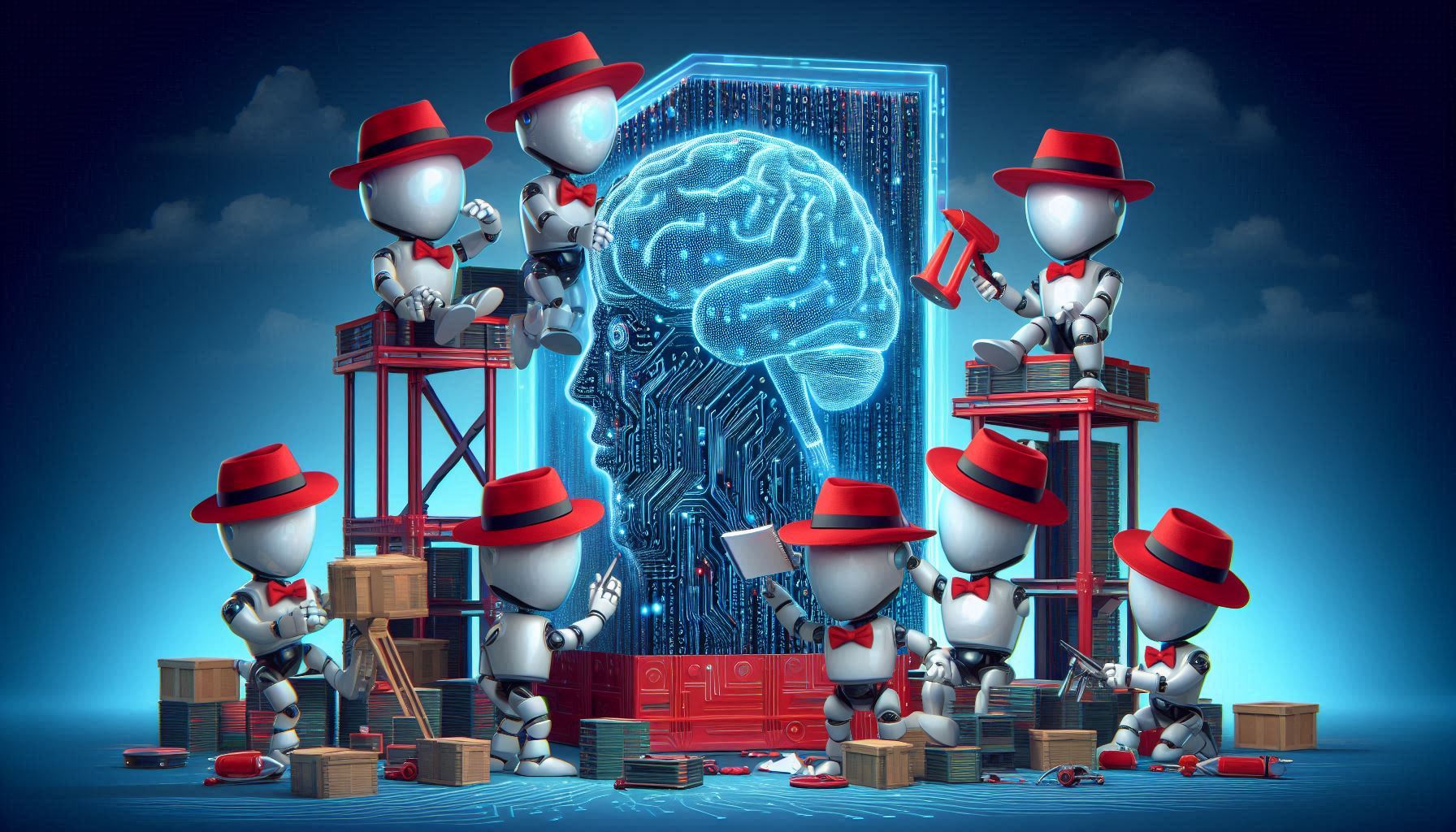 AI
AI
 AI
AI
 AI
AI
Open-source software giant Red Hat Inc. has announced the launch of its dedicated foundation model platform for generative artificial intelligence development in hybrid cloud environments.
Red Hat Enterprise Linux AI is generally available today, having been announced three months ago at the Red Hat Summit. It brings together the open-source Granite family of large language models developed by IBM Corp. with the InstructLab model alignment tools built by Red Hat itself, packaged as an optimized, bootable RHEL image for individual server deployments in hybrid cloud and on-premises environments.
The company explained that RHEL AI is designed to facilitate the development of smaller and lower-cost, general-purpose generative AI models in the most accessible way.
One of the challenges of generative AI is that, despite its immense promise, the cost of the technology can be prohibitive. According to Red Hat, some of the leading generative AI models can cost almost $200 million just to train, not including the price of the data and alignment needed to fine-tune the model to perform a specific task the user had in mind. No matter what model a company selects, alignment is a necessary step to bring it in line with company-specific data and processes, increasing the cost burden.
That’s why Red Hat thinks smaller generative AI models represent the future, and the majority of them will be open-source too, similar to how most modern software is also developed by the open-source community.
Red Hat hopes RHEL AI will be the platform of choice for building those lower cost, open-source generative AI models. The company said the platform provides users with a library of free-to-use Granite LLMs that have been pre-indemnified and aligned for a selection of common generative AI use cases.
The InstructLab tooling is there to help fine-tune models with proprietary knowledge and data, without requiring advanced data science skills. Using RHEL AI, companies will be able to train and deploy generative AI anywhere across the hybrid cloud, close to where their data resides. In addition, the platform provides an on-ramp to Red Hat’s OpenShift AI platform for training, tuning and serving generative AI models using the same tools and concepts.
RHEL AI, which is optimized for deployment on Dell Technologies Inc.’s latest PowerEdge servers, brings the benefits of a Red Hat subscription, including product distribution, 24/7 support, extended model lifecycle support and model intelligent property indemnification, plus Open Source Assurance legal protections, the company said.
Ashesh Badani, senior vice president and chief product officer at Red Hat, sat down with theCUBE, SiliconANGLE Media’s mobile livestreaming studio, during its coverage of the Red Hat Summit event in June, when he discussed how RHEL AI will make generative AI development more accessible:
“You don’t need a massive model if you’re doing customer support,” he said. “Your model doesn’t need to know about how to predict future weather patterns. Can we just give it enough knowledge and skills to do that job and that job really well … much more cheaply, much more efficiently.”
Because RHEL AI is really an extension of Red Hat’s flagship Red Hat Enterprise Linux, it can run in every conceivable information technology environment, including on-premises servers and cloud infrastructure platforms such as Amazon Web Services, Google Cloud, IBM Cloud and Microsoft Azure.
It’s available on AWS, IBM Cloud and on-premises servers from today as a “bring-your-own-subscription offering.” It will launch on Google Cloud and Azure later this year. In addition, it will come to IBM Cloud as an “as-a-service” offering next year.
Support our mission to keep content open and free by engaging with theCUBE community. Join theCUBE’s Alumni Trust Network, where technology leaders connect, share intelligence and create opportunities.
Founded by tech visionaries John Furrier and Dave Vellante, SiliconANGLE Media has built a dynamic ecosystem of industry-leading digital media brands that reach 15+ million elite tech professionals. Our new proprietary theCUBE AI Video Cloud is breaking ground in audience interaction, leveraging theCUBEai.com neural network to help technology companies make data-driven decisions and stay at the forefront of industry conversations.